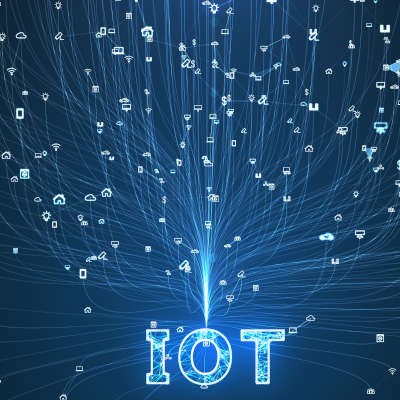Directive Blogs
How the IoT Can Be Used to Help Your Business Processes
The Internet of Things has been around for some time now, with devices being given some level of artificial intelligence and Internet connectivity to improve their intended functions since 1982. After some time as a fringe approach to technology, it has now become an invaluable tool for many business functions. Let’s review the ways that the IoT can be harnessed to your advantage.
There are essentially eight ways that the IoT might benefit a process:
- Improve customer service/experience
- Increase business opportunities and potential revenue
- Improve workplace safety and security
- Increase productivity
- Improve analytics
- Increase operational cost efficacy
- Improve data functions
- Increase opportunities for smart devices
Customer Service/Experience
A solid customer experience is key to the sustainability of any business, so any means that you have to improve the customer’s (or client’s, etc.) experience should be utilized.
The IoT offers various opportunities that many industries have already embraced. Those credit card readers that plug into a smartphone? They’re part of the IoT. Smart tracking solutions can ensure that a client knows how far their delivery has progressed. Assorted “smart” technologies can improve the processes that businesses undergo every day, helping to deliver the product or service a client seeks more efficiently.
Business Opportunities and Potential Revenue
Regardless of how efficiently your team can complete a given task, taking some of that task’s responsibilities off their shoulders will enable them to complete it that much more efficiently. As a result, the same amount of people can spend the same amount of time and yet accomplish more.
By using the IoT to speed up processes, businesses can increase their scope and make better use of their employees in the pursuit of profit-generating opportunities.
Workplace Safety
If a business were to function in an industry where workplace conditions could potentially become hazardous, the IoT can help to minimize the risk to workers. By analyzing and tracking environmental conditions and other factors, dangerous situations can be predicted, and your team can be alerted in due time. As for the office, security solutions that incorporate the IoT can help you to keep an eye on the premises via video surveillance, while smart locks and authentication systems can ensure that only authorized people have access to the building itself.
Productivity
Perhaps the be-all, end-all goal of the modern business, productivity is certainly considered a priority nowadays. The Internet of Things, as we have already touched upon, can enable your team to use their time more effectively, boosting your productivity in and of itself without sacrificing the essential tasks that would otherwise eat up your team’s schedule. After all, if the computer can automatically keep track of your inventory, you don’t have to have one of your team do it, freeing them up to actively produce something.
It also must be mentioned that the IoT can help your business work smarter by measuring the impact of certain activities and scheduling them to meet trends in workplace productivity.
Analytics
While we’ve already touched on customer experience, it is also valuable to have some insights into their behaviors and tendencies beforehand. The IoT can collect and compile analytic data from a wide swath of sources and condense it into actionable insights and trends so that you can shape what you offer to the present demands. From macro analyses to individualized customer profiles, analytics powered by the IoT can help you cultivate a loyal business following by providing a superior service.
Cost Efficacy
Naturally, a successful business is one that can deliver the highest value while keeping their own costs low. Analytics can help a business identify its largest expenses, and with the IoT, the expenses that their infrastructure and its process incur can be optimized. Downtime can be predicted and mitigated, rather than experienced and recovered from, and redundancy can be eliminated. All in all, this helps to keep costs down, while sustaining (if not boosting) output.
Data Functions
Regardless of the industry that a business functions in, data is bound to be an important aspect of its operations. IoT devices are particularly useful when it comes to collecting various data points and tracking them over time. With these technologies in tow, operations can be adjusted to better line up with more reliable expected trends. Optimizing a business’ processes can therefore be a proactive endeavor, with more and more accurate results over time. From customer behavior to patterns of demand, a wide variety of business considerations can be processed, anticipated, and prepared for.
Opportunities for Smart Devices
The IoT can also play a considerable role in industries that have seen a rise in smart device adoption and utilization. With healthcare providers, transportation companies, educational institutions, and various other industries relying on these devices for both their operational and analytical needs, the IoT will only become more crucial as a means of collecting and processing the growing number of data points these industries generate.
As technology advances, businesses will eventually need to adopt the improvements that are made, if only to remain competitive within their given market. For assistance in identifying the best technology solutions available for your needs, as well as with implementing and maintaining them, reach out to Directive to learn more about our managed services. Call 607.433.2200 today.


